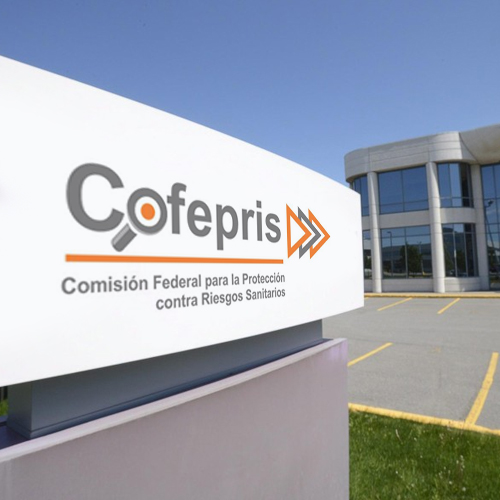Mexico Updates NOM-177: What’s Changing and How It Impacts the Pharmaceutical Industry

On December 16,2025, COFEPRIS published the Draft Mexican Official Standard PROY-NOM-177-SSA1-2025, a major update to the regulatory framework governing bioequivalence, comparative bioavailability, BCS-based biowaivers, and comparative dissolution studies. The draft, currently under public consultation, will replace NOM-177-SSA1-2013 and further align Mexico with FDA and EMA standards.
FDA Reissues Cybersecurity Guidance: Strategic Alignment with QMSR and ISO 13485

Numerous US pharmaceutical industry groups are urging the Food and Drug Administration (FDA) to expand the scope of the recently launched PreCheck Program. Initially focused on accelerating the establishment of new domestic manufacturing facilities, the industry is now advocating for the inclusion of existing factories and the integration of PreCheck with current regulatory initiatives. The main goal is to maximize the program’s impact to rapidly strengthen supply chain resilience and support the generic drug sector.
Brazil x United States: A Comparison of Post-Marketing Pharmacovigilance Requirements (RDCs x FDA)

The Brazilian Health Regulatory Agency (ANVISA) is intensifying enforcement against the dangerous practice of using cosmetics as injectables and reinforcing the strict adherence to Good Manufacturing Practices (GMP). Understand the regulatory implications for the cosmetics and medical device sectors in Brazil and the associated risks.
Regulatory Priorities of Anvisa for 2026–2027: Efficiency, Agility, and Backlog Reduction in Regulatory Processes

The Brazilian Health Regulatory Agency (ANVISA) is intensifying enforcement against the dangerous practice of using cosmetics as injectables and reinforcing the strict adherence to Good Manufacturing Practices (GMP). Understand the regulatory implications for the cosmetics and medical device sectors in Brazil and the associated risks.
Brazil’s Pharmacovigilance Framework: From RDC 406/2020 to RDC 967/2025

The Brazilian Health Regulatory Agency (ANVISA) is intensifying enforcement against the dangerous practice of using cosmetics as injectables and reinforcing the strict adherence to Good Manufacturing Practices (GMP). Understand the regulatory implications for the cosmetics and medical device sectors in Brazil and the associated risks.
RDC No. 406/2020: Brazil’s Regulatory Framework for Good Pharmacovigilance Practices

The Brazilian Health Regulatory Agency (ANVISA) is intensifying enforcement against the dangerous practice of using cosmetics as injectables and reinforcing the strict adherence to Good Manufacturing Practices (GMP). Understand the regulatory implications for the cosmetics and medical device sectors in Brazil and the associated risks.
Greater Rigor and Safety: ANVISA’s New Guidelines for Impurities and Degradation Products in Medicines

The Brazilian Health Regulatory Agency (ANVISA) is intensifying enforcement against the dangerous practice of using cosmetics as injectables and reinforcing the strict adherence to Good Manufacturing Practices (GMP). Understand the regulatory implications for the cosmetics and medical device sectors in Brazil and the associated risks.
Tighter Route: FDA Will Require Randomized Controlled Trials (RCTs) for CAR T-Cell Therapy Approval

Numerous US pharmaceutical industry groups are urging the Food and Drug Administration (FDA) to expand the scope of the recently launched PreCheck Program. Initially focused on accelerating the establishment of new domestic manufacturing facilities, the industry is now advocating for the inclusion of existing factories and the integration of PreCheck with current regulatory initiatives. The main goal is to maximize the program’s impact to rapidly strengthen supply chain resilience and support the generic drug sector.
Clarity and Truth in Advertising: FDA Finalizes Guidance on Promotional Labeling for Biologics and Biosimilars

Numerous US pharmaceutical industry groups are urging the Food and Drug Administration (FDA) to expand the scope of the recently launched PreCheck Program. Initially focused on accelerating the establishment of new domestic manufacturing facilities, the industry is now advocating for the inclusion of existing factories and the integration of PreCheck with current regulatory initiatives. The main goal is to maximize the program’s impact to rapidly strengthen supply chain resilience and support the generic drug sector.
Navigating the Frontier: The Global Regulatory Landscape for AI/ML-Enabled Medical Devices

The Brazilian Health Regulatory Agency (ANVISA) is intensifying enforcement against the dangerous practice of using cosmetics as injectables and reinforcing the strict adherence to Good Manufacturing Practices (GMP). Understand the regulatory implications for the cosmetics and medical device sectors in Brazil and the associated risks.
Global Techno vigilance: What changes with Anvisa’s adoption of IMDRF terminology

The Brazilian Health Regulatory Agency (ANVISA) is intensifying enforcement against the dangerous practice of using cosmetics as injectables and reinforcing the strict adherence to Good Manufacturing Practices (GMP). Understand the regulatory implications for the cosmetics and medical device sectors in Brazil and the associated risks.
Towards Sanitary Sovereignty: The Infliximab API and the Challenge of National Production

The Brazilian Health Regulatory Agency (ANVISA) is intensifying enforcement against the dangerous practice of using cosmetics as injectables and reinforcing the strict adherence to Good Manufacturing Practices (GMP). Understand the regulatory implications for the cosmetics and medical device sectors in Brazil and the associated risks.